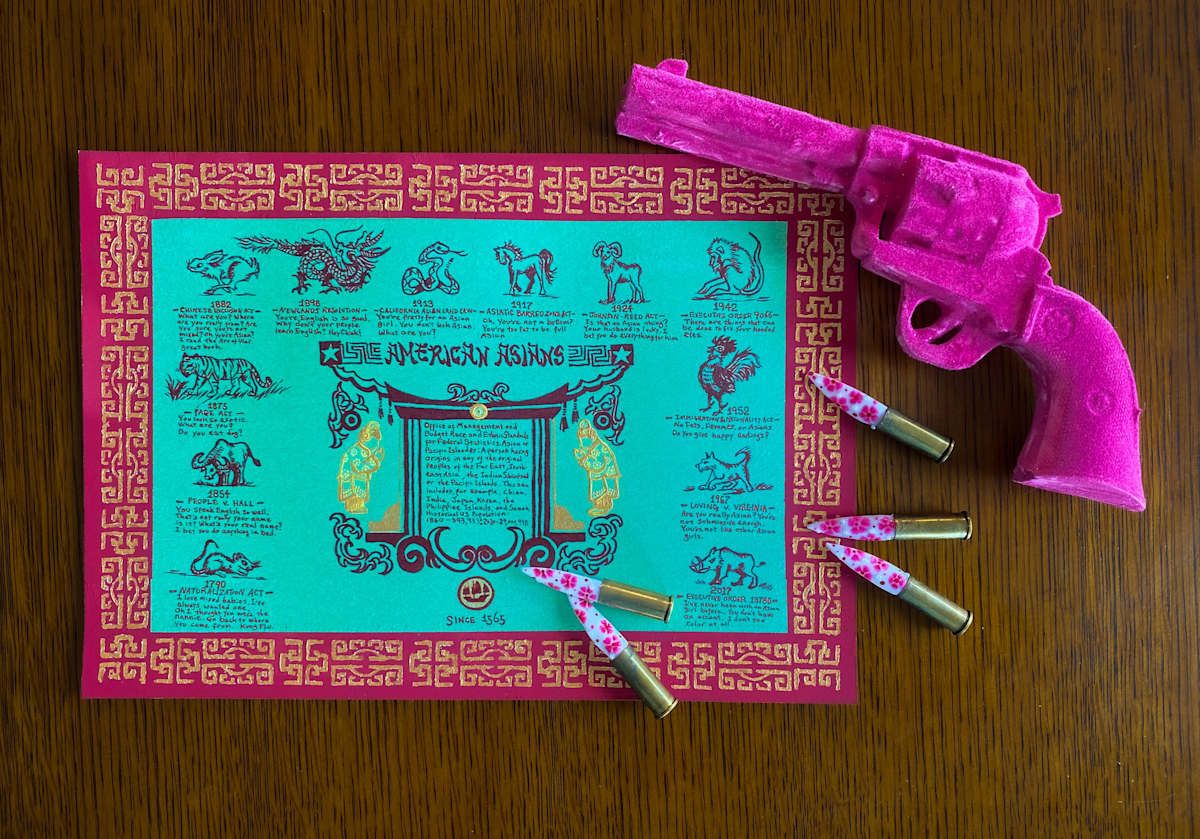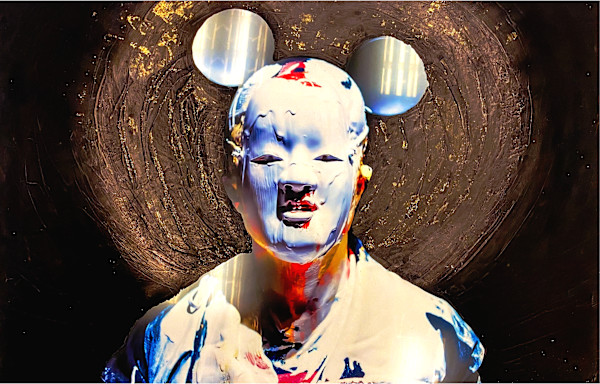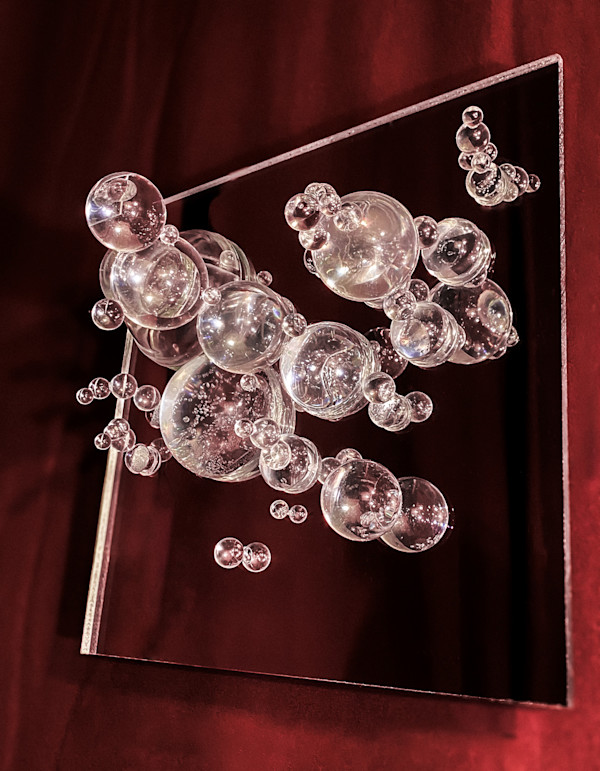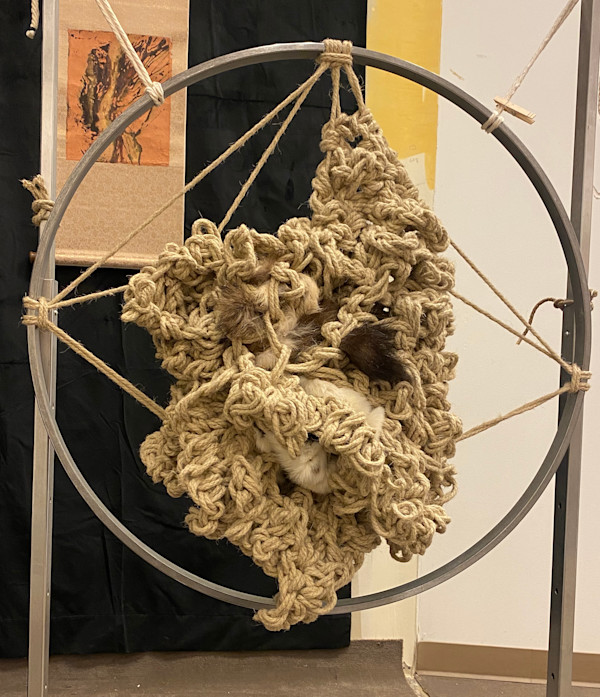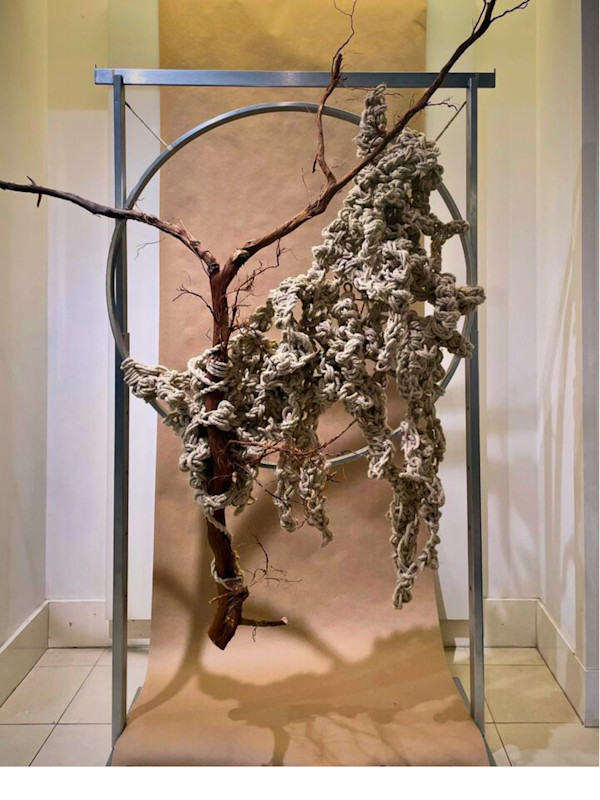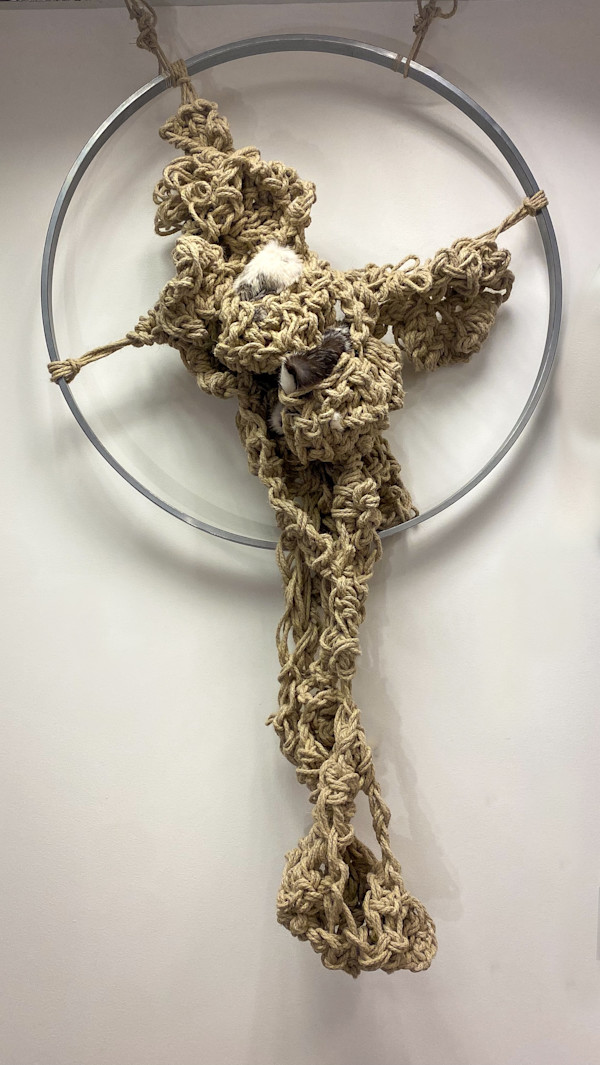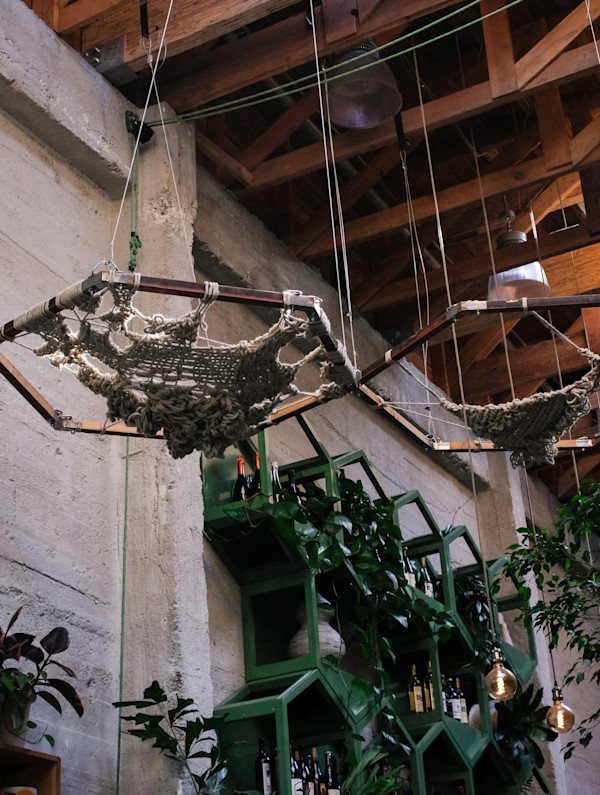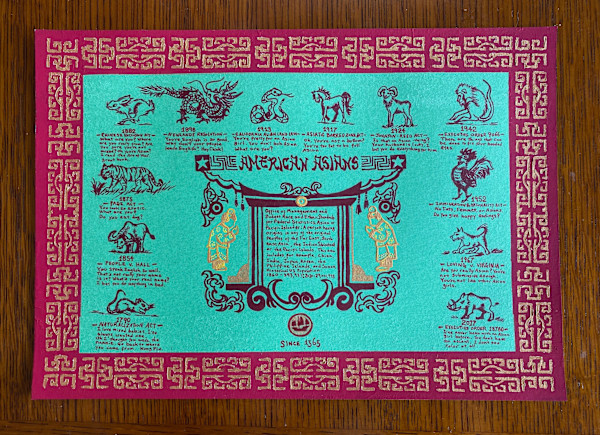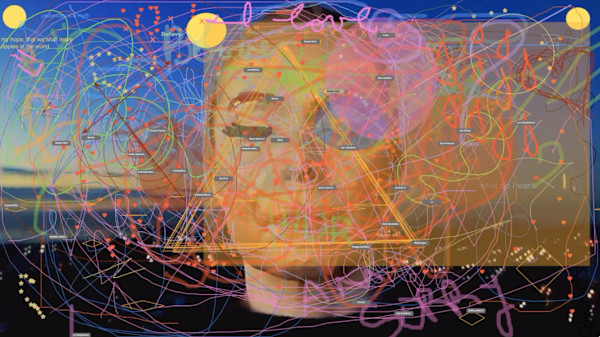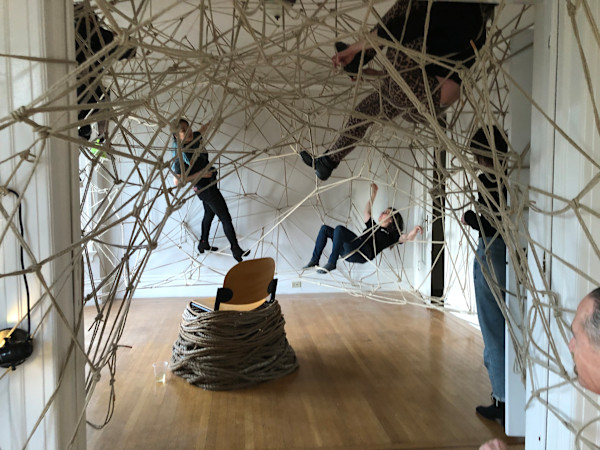Using gouache and gold leaf, I reimagine the classic paper placemats found in Chinese American restaurants catering to white customers. Instead of zodiac animals, I replaced them with anti-Asian and other discriminatory laws spanning from 1882 to 2017. The traditional zodiac personality traits? Gone—replaced by slurs and hate speech experienced daily by Asians. These words were gathered through public calls on social media, where responses poured in—a flood of lived experiences and frustration. At the center is the U.S. government’s official definition of "Asian."
Resting on the placemat is a "Peacemaker" revolver, flocked in glittery Hello-Kitty pink. Nearby, five bullets lie on the table, their rounds tipped with hand-painted acrylic nails.
I grew up loving Kung Fu and Samurai movies. But every time a white savior vanquished the sinister Chinese restaurant opium den, or humbly learned the ways of a wise sushi-chef-secret-ninja-master—usually accompanied by the sultry Asian femme love interest—I felt uneasy. These stories shaped perceptions, ours included. I want to subvert this tired trope. So here it is: a big, pink, velvety gun. In all its campy glory, we get to be the hero this time.
When I immigrated from Japan to rural Washington in 1979, the only place to find anything remotely Asian was the Golden Wheel Chinese Buffet. It wasn’t Chinese food—not really. Thickly breaded sweet-and-sour meats, neon-red sauces, pupu platters. But it was the only place in town with soy sauce, so we made do. I remember the paper placemats, designed to "teach" white diners about "the Orient." If I wanted a taste of home, I had to accept this strange, exoticized version of my own culture.
Over the years, conversations with fellow Asians often drift to the latest microaggressions, the casual racism thrown at us. We roll our eyes, laugh it off, and try not to internalize the stereotypes. We tell ourselves: Just work harder. Be excellent. Be more "American." Our families caution us, Don’t rock the boat.
Power—its presence, its absence, its negotiation—is everywhere. As an Asian American Queer Femme immigrant, I navigate these shifting dynamics daily. Because the reality is, violence and discrimination against Asian Americans—and anyone deemed an inconvenient Other—have always existed. Yes, it's worse now, but we don’t have to be the silent, obedient model citizens. While I understand the well-intentioned slogan Stop Anti-Asian Hate, it still feels rooted in respectability politics.
It’s time for something bigger. It’s time to embrace our fierceness, our power.
P.S. If you're an old-school San Franciscan, you’ll recognize the title. Consider this a love note and a wink to all of us locals.

